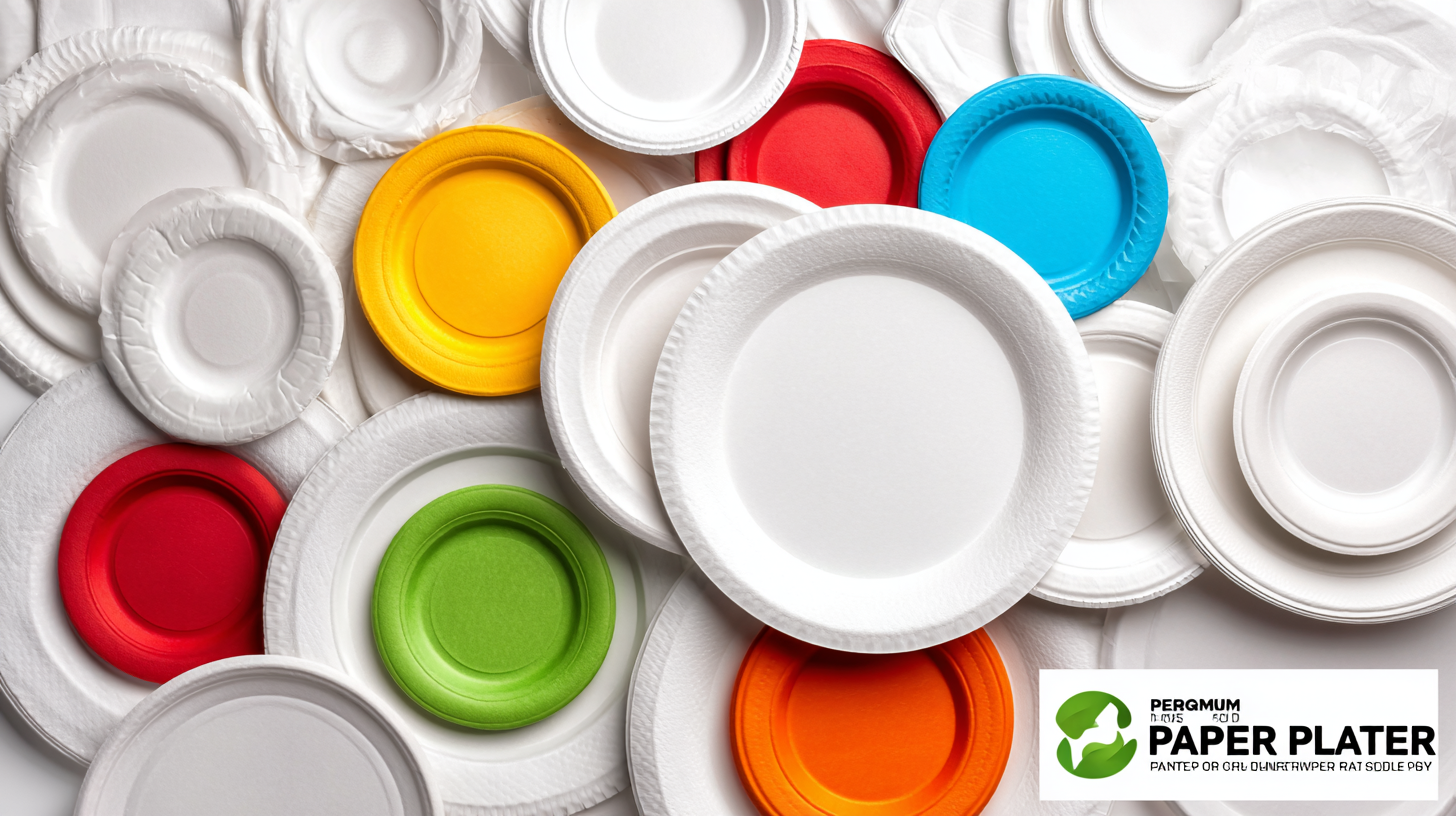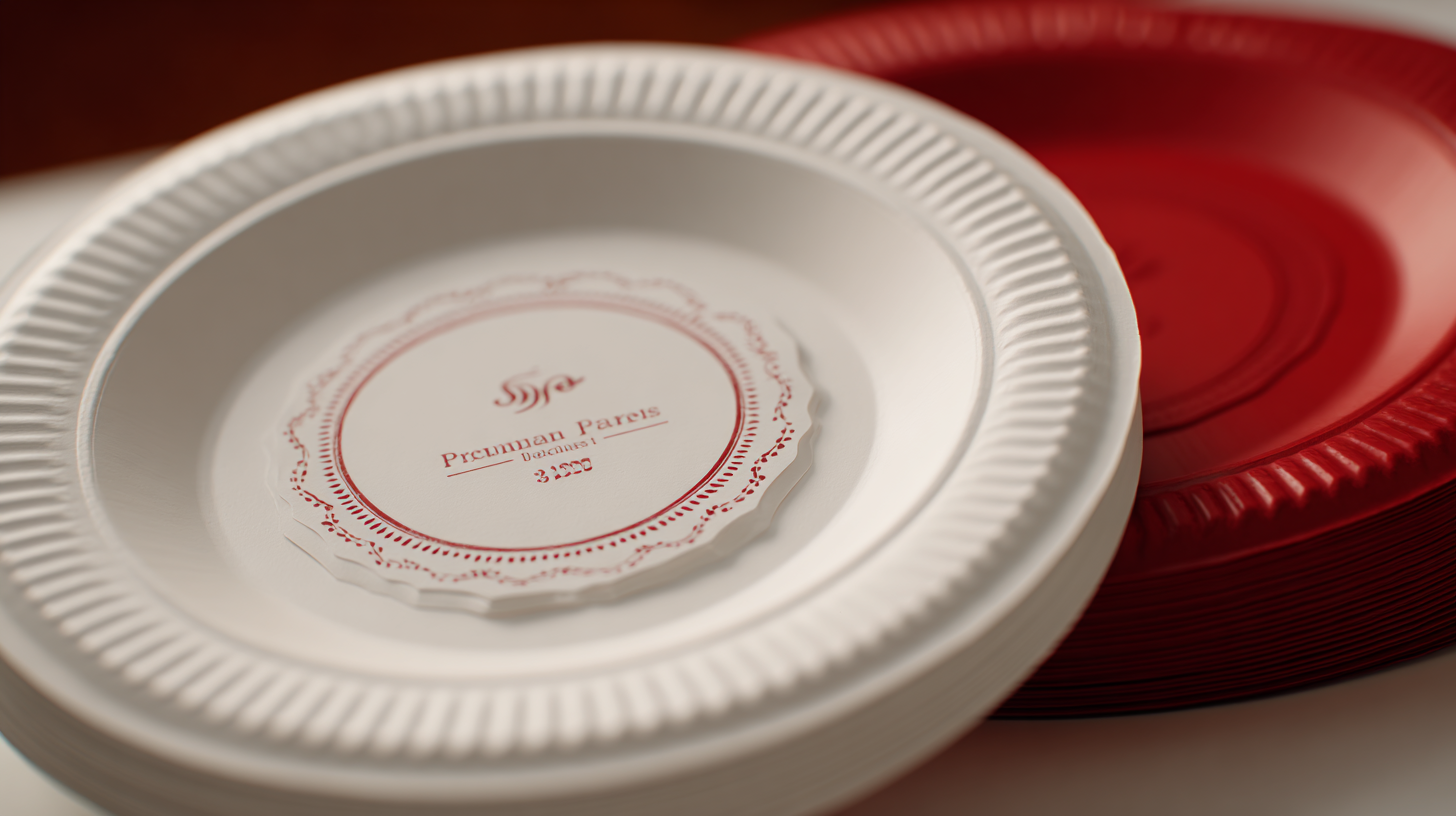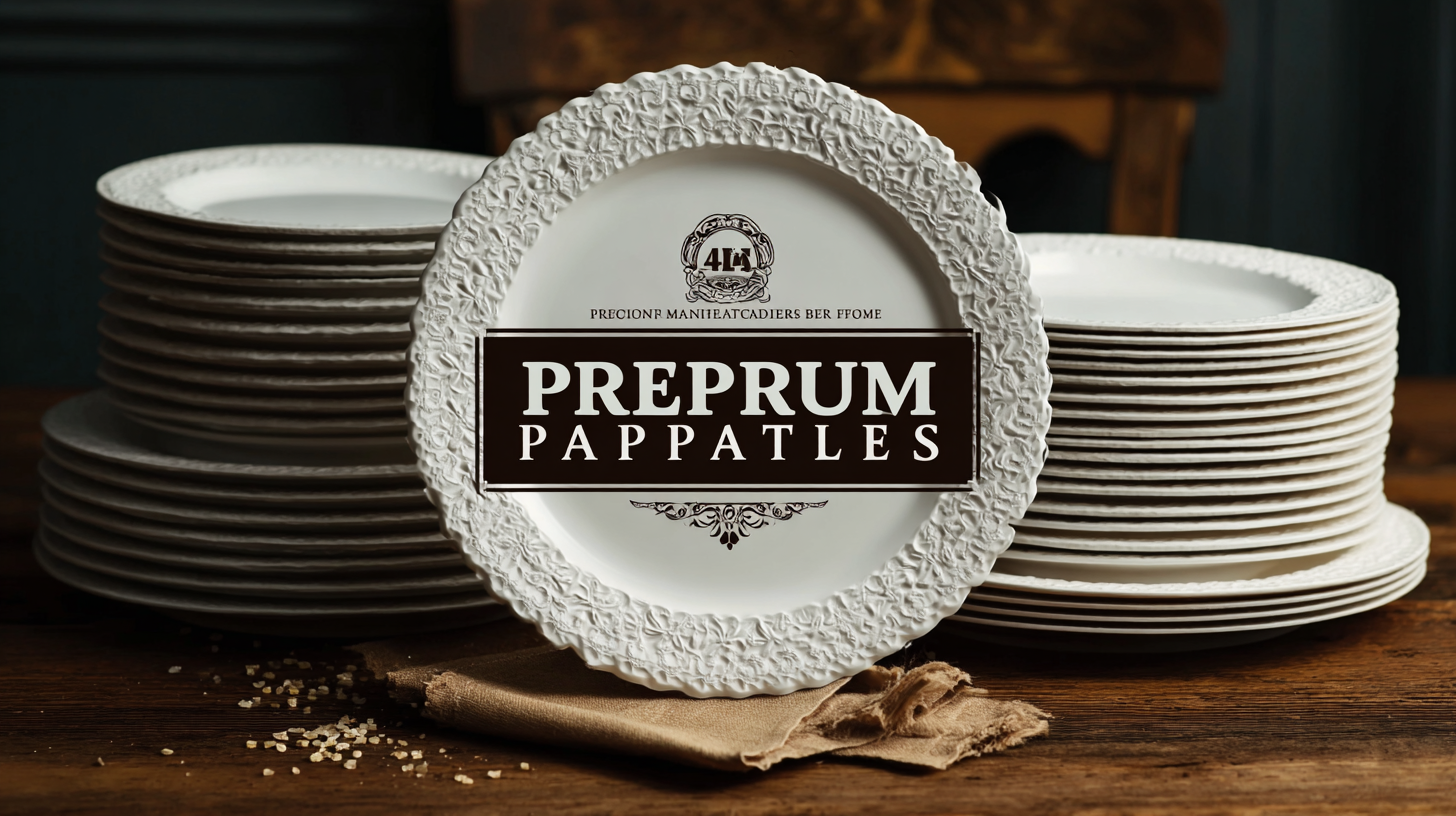Leave Your Message
When it comes to hosting events, parties, or casual gatherings, the choice of dinnerware can significantly impact the overall experience. As the demand for eco-friendly options grows, many global buyers are turning to Premium Paper Plates as an ideal solution. These plates not only offer convenience and style but also align with sustainable practices, making them a popular choice among environmentally conscious consumers. However, selecting the right manufacturer for Premium Paper Plates can be a daunting task, given the multitude of options available in the market. This ultimate guide aims to equip you with essential insights and criteria to consider when choosing a manufacturer, ensuring that you make a well-informed decision that meets your quality standards while catering to the unique needs of your event or business.

When selecting premium paper plates, understanding key technical specifications is essential for buyers seeking quality and functionality. One crucial aspect to consider is the plate's weight and thickness. Premium paper plates are typically designed with a heavier base, which enhances their sturdiness and resistance to bending or leaking, even when holding moist or heavy foods. A weight of around 300 grams per square meter is ideal for optimal strength while maintaining a lightweight feel for convenience.
Another critical specification is the coating used on the plates. Many premium options come with a biodegradable or compostable coating, ensuring that they not only withstand grease and moisture but also contribute positively to environmental sustainability. Additionally, the source of the paper—whether made from recycled materials or virgin pulp—can impact both the quality and environmental footprint. Buyers should always inquire about certifications such as FSC (Forest Stewardship Council) to ensure responsible sourcing practices. These technical specifications are vital for global buyers aiming to balance durability, aesthetics, and sustainability in their choice of premium paper plates.
| Dimension (inches) | Material Type | Weight (grams) | Coating Type | Heat Resistance (°C) | Water Resistance | Recyclable |
|---|---|---|---|---|---|---|
| 9 | Sugarcane | 20 | PLA Coating | 95 | Yes | Yes |
| 10.5 | Wood Pulp | 25 | Polyethylene | 90 | No | Yes |
| 7 | Bamboo | 15 | None | 85 | Yes | Yes |
| 6 | Recycled Paper | 18 | PLA Coating | 80 | Yes | Yes |
When selecting a manufacturer for premium paper plates, there are several essential qualities that global buyers should prioritize. Firstly, it’s crucial to assess the quality of materials used in production. A reliable manufacturer should utilize eco-friendly, food-grade materials that ensure safety and sustainability. This not only aligns with health regulations but also caters to the growing demand for environmentally conscious products. By choosing a manufacturer who is committed to high-quality materials, you enhance the overall appeal and reliability of your product.
Another important aspect is the manufacturer’s production capabilities and technology. A modern facility equipped with advanced machinery can offer better consistency and efficiency in production. Evaluate the manufacturer’s ability to handle various designs and customizations, as this flexibility can cater to diverse market needs. Additionally, obtaining transparent information regarding their production processes can help ensure that they adhere to quality control standards, which is vital for maintaining customer satisfaction and trust in your brand.
 When selecting a manufacturer for premium paper plates, understanding the production processes is crucial. According to a report by Smithers Pira, the global demand for paper plates has increased by 5.2% annually, reflecting a growing preference for eco-friendly and convenient dining solutions. Buyers must first assess the manufacturing capabilities of potential suppliers. Key factors to consider include the use of biodegradable materials, the technology employed in production, and compliance with industry standards such as ISO 9001 and FDA certifications. A thorough evaluation helps ensure that the manufacturer can meet quality and sustainability expectations.
When selecting a manufacturer for premium paper plates, understanding the production processes is crucial. According to a report by Smithers Pira, the global demand for paper plates has increased by 5.2% annually, reflecting a growing preference for eco-friendly and convenient dining solutions. Buyers must first assess the manufacturing capabilities of potential suppliers. Key factors to consider include the use of biodegradable materials, the technology employed in production, and compliance with industry standards such as ISO 9001 and FDA certifications. A thorough evaluation helps ensure that the manufacturer can meet quality and sustainability expectations.
Next, examine the production techniques utilized in crafting the paper plates. Advanced manufacturing processes such as hot press and dry formation can significantly impact the durability and aesthetics of the final product. The Sustainable Foodservice Packaging Institute reports that 54% of consumers prefer products made from renewable resources, highlighting the importance of sourcing from manufacturers that prioritize sustainable materials. By delving into these aspects, global buyers can make informed decisions and establish partnerships that align with their values and market demands.
When choosing a manufacturer for premium paper plates, it’s essential to consider the materials used in the production process, especially if you aim to provide eco-friendly products. High-quality paper plates can be made from recycled materials, reducing waste and minimizing the reliance on virgin resources. Buyers should look for manufacturers who prioritize sourcing materials from sustainable forests and utilize biodegradable additives in their products. This ensures that the plates not only serve their purpose effectively but also align with environmentally responsible practices.

Moreover, transparency in the manufacturing process is crucial. It’s beneficial to partner with manufacturers who can provide certifications for their eco-friendly materials and demonstrate their commitment to sustainability. By examining the production practices, such as water usage, energy consumption, and carbon emissions, buyers can make informed decisions. Opting for manufacturers who adopt clean technology and prioritize waste reduction can further enhance the eco-friendliness of the paper plates you choose. This focus on sustainable practices not only appeals to environmentally conscious consumers but also positions your brand favorably in a competitive market.
When choosing a manufacturer for premium paper plates, understanding regulatory standards is crucial for global buyers. The paper products industry is governed by various regulations intended to ensure safety, quality, and environmental responsibility. For instance, the FDA regulates food contact substances, which includes paper plates, under the Food, Drug, and Cosmetic Act. Manufacturers must comply with these standards to prevent contamination and ensure that materials used are safe for consumers. A report from Smithers indicates that the global market for paper plates is expected to reach $9.54 billion by 2027, emphasizing the need for compliance to maintain product integrity and market share.
Additionally, certifications such as the Forest Stewardship Council (FSC) and the Sustainable Forestry Initiative (SFI) can help manufacturers demonstrate their commitment to sustainable practices. A 2021 survey by Industry Insights found that 68% of consumers are willing to pay more for products made from sustainable materials. Therefore, buyers should prioritize manufacturers that not only meet regulatory standards but also possess sustainable certifications. By aligning with stringent standards and sustainable practices, companies can enhance their reputation and fulfill the growing demand for eco-friendly products.
